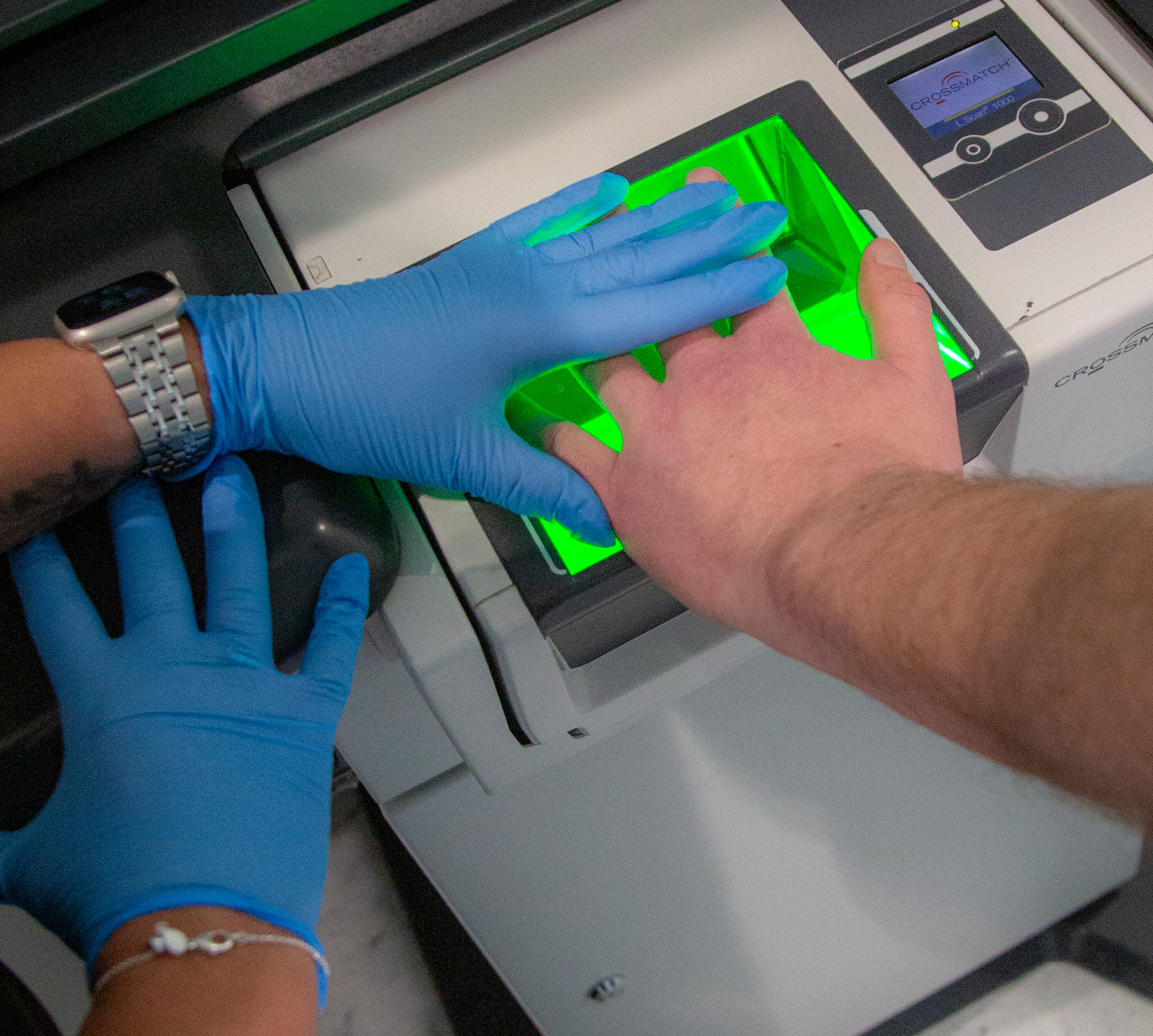Custody Detention Officer
Custody Detention Officer
Applications to join us as a Custody Detention Officer are currently closed. Sign up to job alerts to be the first to find out when this entry route opens.
The main role of a Custody Detention Officer (CDO) is to ensure the dignity and welfare of those the police have arrested and detained in one of our custody suites. Duties range from administration to taking DNA samples. CDOs perform a vital role in keeping everything running smoothly, ensuring the safety and well-being of detainees and visitors.
Working with police and custody sergeants, CDOs are responsible for detainees from the moment they arrive at the police station – booking them in, logging their possessions, taking fingerprints and photographs and making sure they are secure in a cell.
They then check on detainees throughout their stay, ensuring their well-being until their release or transfer, taking them bedding, food and drink, making regular cell checks, and keeping cells clean. Cells can become messy if a detainee is intoxicated or becomes sick, so CDOs need to be prepared to clean the cell and be compassionate towards the detainee when this happens.
Other duties include answering phone calls, communicating with solicitors, and a whole host of other responsibilities. There really is no average day for a Custody Detention Officer.
CDOs start on a Salary of £23,151.43 – £27,351 (Basic Rate) – £31,066.36 – £36,701.66 (Once working full shifts) and are assigned force-wide. Successful candidates will be expected to travel countywide for training and to cover staff shortfalls, therefore a full driving licence is essential. You will also be expected to have access to a vehicle with business insurance to cover your working around the county. Expenses may be claimed when working away from your home station, but you will be based at Police HQ during your training.
Your working hours as a Custody Detention Officer
Each shift you will work 12 hours with a shift pattern that consists of 2 early shifts (start at 7am and finish at 7pm), 2 late/night shifts (start at 7pm and finish at 7am), followed by 4 consecutive days off (with some exceptions).
All successful candidates will be required to undertake a compulsory five week initial training course running week days (Monday to Friday) from Monday 20th January 2025 up to and including Wednesday 19th February 2025. This will be held at Lancashire Police Headquarters, Hutton, Preston PR4 5TJ.
Entry Requirements
You need to be at least 18 years old and don’t need to have any specific qualifications to apply. You will also need to have a full driving licence and access to a vehicle as you may be expected to work at different custody suites (depending upon demand).
Case Study
Mohammed came to Lancashire Police after working as a security officer in a court room and finds his role as a Custody Detention Officer extremely rewarding. Despite being relatively new to his position, Mohammed already knows it’s the right career choice for him: “The best part of my job is not knowing what I will encounter as every day really is different. It is not a repetitive job and it’s interesting.”
As well as feeling fulfilled at work, working as a CDO fits in well with Mohammed’s home commitments. He said: “I had never worked a shift pattern before, having had 9-5 jobs. It does take some getting used to at first but I am really enjoying it. The hours work out brilliantly with my family life.”
If I could offer any advice to prospective applicants it would be to research the role, get an understanding of what is expected of you and go for it. I am really glad I applied and was successful in gaining this role. I have always wanted to make a difference in the community and get to do this every day.
Case Study
Nick was in his late 30s when he joined Lancashire Police as a Custody Detention officer in 2003. He quickly realised he’d found his niche and says he’s here for the duration.
Based in Blackpool, Nick has previously covered shifts in Lancaster, Preston and Blackburn, and things have changed considerably during his 19-year career. He said: “There are high tech cameras everywhere now and the role involves a lot more responsibility, rules and regulations.”
What hasn’t changed is the life skills required to do a good job.
“I’m not academically gifted,” Nick said. “But a degree won’t calm someone down or teach you how to deal with detainees of all ages and backgrounds. What you need is empathy, sympathy and the ability to talk to people. As a CDO you could be dealing with someone in for murder one minute and the next it could be a 13-year-old boy for shoplifting. The youngest I’ve seen is 10 and the oldest 99.
“But whatever they’ve been arrested for I treat everybody the same, it’s not my role to judge. I just look after them, do everything I can to keep them safe and try to chat with them. With the vast majority humour works, but if I’m concerned about them I go straight to the Liaison and Diversion team to ensure they are given the right support.”
The shifts work well for Nick too, even with children aged 3 to 37: “We have a 10-week rota and I like knowing what I’m doing in advance.”
It’s not for the faint-hearted or squeamish and it’s challenging – but also rewarding. I once received a Chief Superintendent’s Commendation along with three colleagues and the Sergeant for saving someone’s life after they had a heart attack in a cell. To anyone thinking of applying I would say go for it. I’m glad I did and have no regrets. I’ve met some wonderful people and the Constabulary looks after you well. I’ll be here until I retire
Custody Detention Officer Application Process
When applications are open, you are able to complete and submit your form online.
Make sure you read the application form carefully and provide full answers to all the questions.
Once we receive your completed form, we will check it against our standard recruitment criteria – e.g. convictions and nationality. If you are eligible to work for Lancashire Constabulary, your application will move on to the next stage.
If your application is unsuccessful at this stage, we will contact you by email to let you know.
At this stage, you will be invited to attend an interview. If your application passes the initial stages we will contact you to arrange an interview. The interview questions will be based around the same criteria as detailed on the candidate specification and will seek to find out how you would perform in the job in question. We would also suggest visiting another section of our website for information on our values and force priorities.
A Health Declaration form will be sent to you for completion which our Health Services team will screen. It is imperative that you complete the form accurately and do not withhold any information. In some cases, they may need further information (for example from GPs or specialists) and you will be medically pended while this is being obtained. The Equality Act 2010 covers all positions in Lancashire Constabulary. If you have a disability, adjustments will be made if it is reasonable to do so.
During this process, you will be required to undertake a Substance Misuse Test and for some specific roles, you also have to provide a DNA sample (mouth swab) and have your fingerprints taken.
You will be required to complete a medical questionnaire prior to attending our Occupational Health and Wellbeing department where by you will seen by one of our nurses who will undertake your hearing test and take a urine sample to check for use of illegal substances
After all of the above has taken place you will be given a formal offer of employment and you discuss start dates for your exciting new career!








